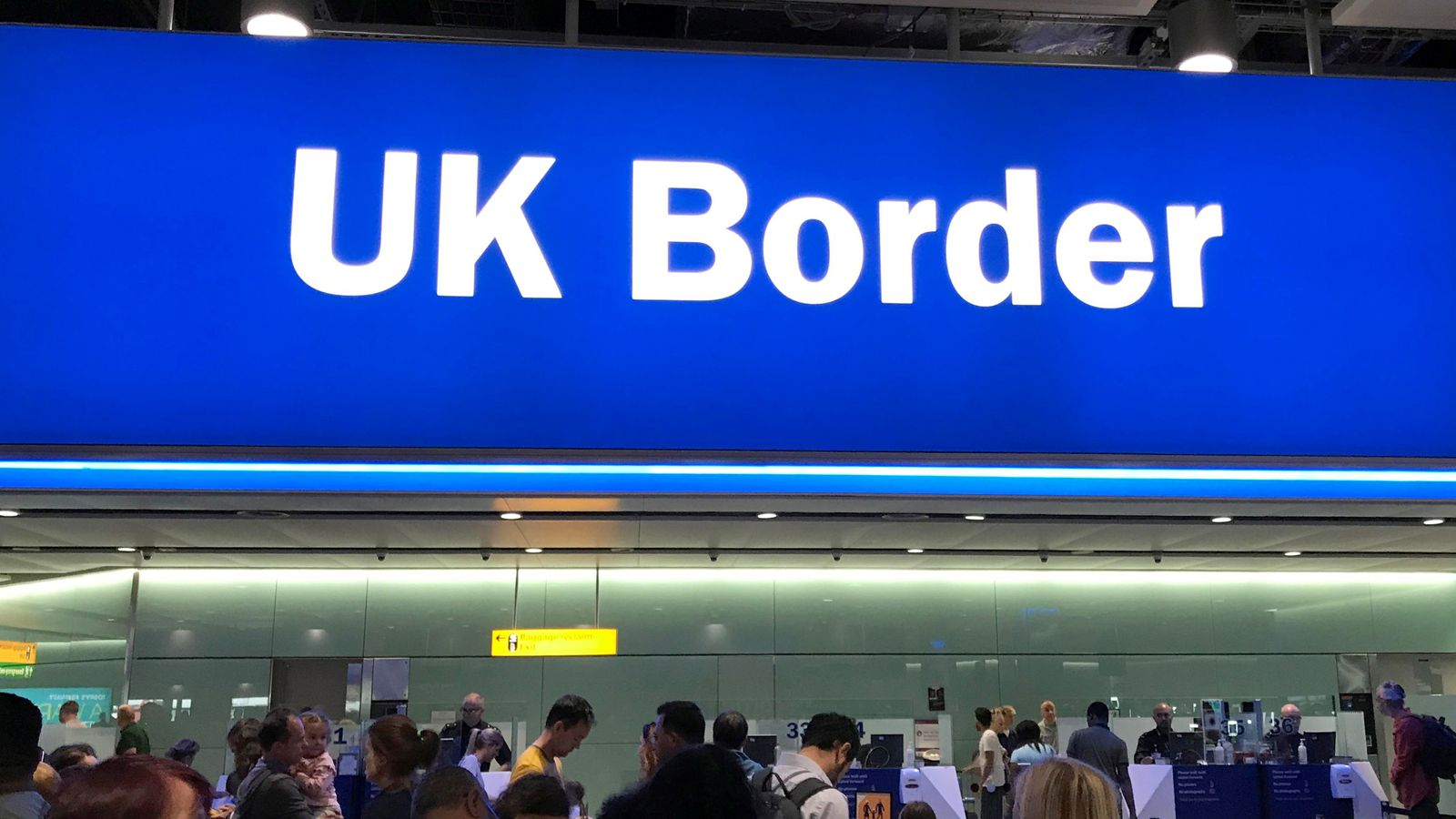Net migration to the UK has risen to 672,000 in the year to June 2023 – up from 607,000 for the previous year, the ONS has said.
The last figure for a 12 month period was released in May, saying net migration had hit 606,000 – deemed a record high for a calendar year.
But revised figures released by the Office for National Statistics on Thursday showed the actual figure for that period was even higher, reaching 745,000 in the year to December 2022.
Politics live: Clear choice at next election, says Hunt
The ONS said while today’s number represented a drop from that record, it was “too early to say if this is the start of a new downward trend”.
But senior Tory backbenchers have already hit out at the figure, with former minister Simon Clarke saying it was “unsustainable both economically and socially” to have legal migration so high.
Net migration is the number of people arriving in the UK when both immigration (people coming to the UK) and emigration (people leaving the UK) are taken into account.
The prime minister is under increasing pressure from the right of his party to reduce net migration in light of the 2019 Tory manifesto, which promised to bring the “overall number down”.
In 2010, then prime minister David Cameron – now Lord Cameron, pledged to bring net migration down to the “tens of thousands”.
According to the ONS, most people arriving to the UK over the last year were non-EU nationals – a total of 968,000 – followed by 129,000 EU citizens and 84,000 British people.
But both EU nationals and Brits were leaving the country in greater numbers, meaning the net figure was -10,000
and -86,000 respectively, while the net figure for non-EU people was 768,000.
The number of people granted asylum to the UK for the year has remained relatively stable, as while it hit 88,000, compared with 73,000 in year to June 2022, ongoing COVID restrictions in that period had an impact.
The ONS said migration to the UK had been “relatively stable” before the COVID pandemic, but “patterns and behaviours have been shifting considerably since then”.
The statistics experts said net migration “increased sharply” since 2021 due to a rise in non-EU immigration – including people coming by humanitarian routes from Ukraine and Hong Kong – as well as an increase in non-EU students and workers.
The government has already introduced measures to reduce migration, including stopping international students who come to the UK from bringing family with them except under specific circumstances.
The New Conservatives group on the Tory right has called for ministers to close temporary visa schemes for care workers and to cap the number of refugees resettling in the UK at 20,000, in a bid to reduce net migration to 226,000 by the time of the election.
Rishi Sunak is also under strain after the Supreme Court ruled that his policy of sending asylum seekers to Rwanda – a key part of his plan to get immigration figures down – was unlawful.
The Rwanda policy would see anyone arriving in the UK by unauthorised means, such as a small boat, deported to the African country to claim asylum there and not the UK.
But in its landmark ruling last Wednesday, the Supreme Court found the scheme was unlawful on the grounds that those sent to Rwanda would be at “real risk” of being sent back to their country of origin regardless of whether their asylum claim was justified or not – something that would breach international human rights laws.
In the aftermath of the ruling, Mr Sunak doubled down on the policy, telling MPs he was prepared to “change laws and revisit… international relationships” if they were “frustrating” his plans.
However, he also acknowledged that even if domestic laws are changed, the government could still face legal challenges from the European Court of Human Rights (ECHR) and vowed: “I will not allow a foreign court to block these flights.”
The stalemate over Rwanda has bolstered calls from some in the Tory party for the UK to withdraw from the ECHR altogether after an injunction last June stopped the first scheduled flights from taking off.

